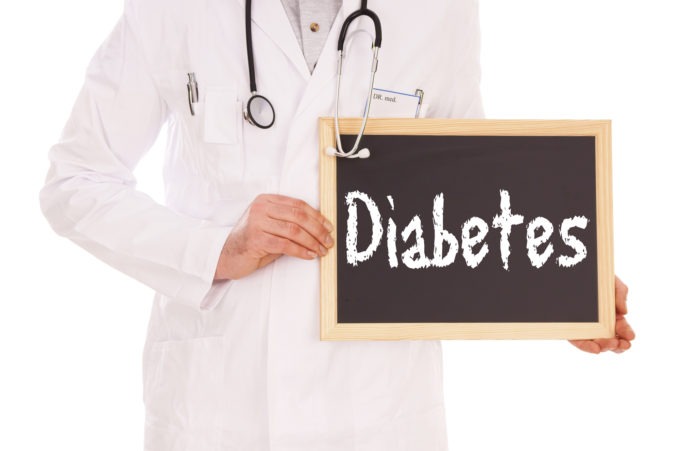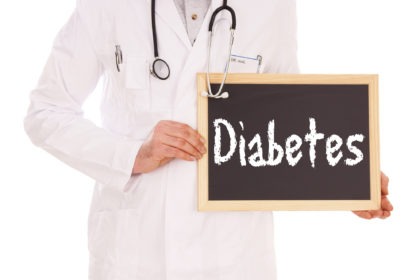My April 2016 blog post is going to describe my general thoughts on the medical community and other haters of my cause. My experience with doctors as a non-insulin T1D has not been the most pleasant, but I do have much respect for the medical community as a whole.
I divided my blog post in 3 sections…the good, the bad and the ugly…
THE GOOD
Overall, I believe a majority of doctors are really trying to help people and have their patients’ best interests in mind. Over the years, the medical community has been able to eradicate numerous diseases and also allow people to live with certain diseases that would otherwise prove fatal if left untreated (i.e. type 1 diabetes).
Helping my Dad
Specifically, my Dad was diagnosed with T1D in the 1970’s when he was in his twenties. At that time, the disease was much more difficult to manage and far less information was available than it is today.
A powerful example was that blood sugar monitors were not around when my Dad was first diagnosed. He actually had to pee on a test strip, and the color determined whether his levels were high or low (talk about stressful). Present day I can get my actual blood sugar readings within seconds of putting a drop of blood on the test strip…much easier.
The medical community’s invention of diabetic insulin has allowed people like my Dad to survive with the disease. My Dad is currently in his 70’s after living with the disease for over 40 years. If doctors had not invented insulin, he almost certainly would not be here today.
Helping Me
Also, I’m lucky to have two healthy children, and I couldn’t even imagine not having doctors and nurses around to help make sure the delivery went smooth. In addition, if I ever broke my leg or needed a surgery, doctors would be the first people I call.
I guess my point is that although I do get frustrated with the medical community at times, I fully admit they do a lot of good for the human race.
THE BAD
The “Bad” can include two different aspects; 1) the drug manufacturers and; 2) the medical schools.
Greedy Drug Manufacturers
The drug manufacturers have a major conflict of interest with the general health of society. On one hand, you can say these companies help save people’s lives and/or help people with diseases manage their daily lives. On the other hand, they are making billions of dollars each year making sure society stays heavily medicated.
The problem is that a large portion of diseases in the world are the result of a poor diet. A poor diet helps disease fester in our bodies and promote an overall lower quality of health.
Great big pharma article…click here.
Lack of Incentive to Cure Disease Through Diet
I truly believe the drug manufacturers are fully aware of the extent to which a proper diet can eliminate disease. However, there is just too much money floating around the industry that supports a heavily medicated society.
I mean, if you were the CEO of drug manufacturer, why on earth would you want people to stop taking medication? That would mean far less money in your pocket.
It’s unfortunate to say, but there are a lot of bad things in this world that are motivated by greed. Can someone please tell me how cigarette companies are still able to sell cigarettes to the public? It’s proven that they give you cancer and promote disease.
Unfortunately, these companies pay lobbyists a significant amount of money to make sure the government can’t shut them down or stop selling their products.
Lack of Diet Education at Medical School
Medical schools are part of the problem as well. I was listening to a documentary a few weeks ago, and they asked a doctor how much of their medical school curriculum was devoted to how a diet can impact disease. The answer was around a few hours. Yes, of 8-10 years of medical school, only a few hours were devoted to how a diet can affect disease. Something wrong here?
It’s not the doctors’ fault that their schooling doesn’t educate them on the profound impact that a diet can have on disease. I put blame higher up with the people funding / running these universities that have to be aware of how diet is more so than ever eradicating disease and making medications less relevant.
Once again though, what incentive do medical schools have to push education on fighting disease through diet and exercise as opposed to medication? These medical schools are making money hand over fist to support medication as the fix for all disease.
Also if I was a doctor and I just went $200,000 in debt for medical school, I certainly would be hesitant to shift my practice to diet over medication for treating disease. Medication has a much more lucrative recurring revenue model considering many drugs just put band-aids on the problems and don’t address the underlying issues.
Type 2 Diabetes Making Drug Manufacturers Rich
Type 2 Diabetes is one of the most profound examples of this. T2D is borderline an epidemic at this point, but can you imagine how much money the drug manufacturers and medical community make each year by keeping their T2D patients on medication? Again, why on earth would they want these T2Ds to know that a diet can cure their disease with a 100% effective rate.
My comments are meant to be general in nature and are directed at a majority of the medical community. I’m certain there are doctors out there who try and push diet to help their patients, but it certainly seems like these individuals are the minority.
THE UGLY
My “Ugly” category is reserved for ignorant haters. In my experience so far, these haters have taken the form of certain doctors and parents of children with Type 1 Diabetes.
Ignorant Haters – Doctors
Some of my biggest supporters have actually gotten in arguments with people in the medical community when discussing my situation. The tension was purely the result of certain doctors that are so ignorant that they refuse to believe that a T1D can be living free of medication for over two years.
They claim that I’m either 1) a Type 2 Diabetic or 2) that I’m still honeymooning.
Shame On You!
First off, shame on any medical professional that believes that I’m lying. Do you really think that I’m not a T1D? Do you think that I didn’t go through an extremely stressful 2-3 months post diagnosis trying to figure out what was wrong with me? I wish I was a Type 2 Diabetic as my life would be much less stressful.
Secondly, so I’m still honeymooning? You ignorant haters could be totally correct that I’ll some day need medication, however, what about the specific examples in my previous blog post. I’m certainly not the only one doing this for a prolonged period of time.
Medication – Old School Way of Treating Disease
My final thoughts to you doctors that are ignorant haters is to please keep an open mind and don’t argue with my supporters. Also, initially treating disease through medication is the old school way to approach things. All medication does in most instances is put band-aids over the problem.
The new school way to approach disease is to hit it at its core through a better diet. This is the only true long-term fix for most disease. If medication is necessary, then so be it, but every patient should know that diet is paramount to the overall eradication of most diseases.
Parents of Children with T1D
First off, I want all parents with children of T1D to know that I’m on your side. I couldn’t even imagine how difficult life would be to raise a child with T1D. This is a very tricky disease and I absolutely empathize with your situation.
That said, I’ve received nastygrams from parents who get very frustrated with my message like I’m creating some sort of false hope for their situation. As I mentioned in previous blog posts, I can not guarantee your child could be removed from insulin with the correct diet, but it is a possibility.
At the end of the day, I have the same disease that your child has, and a raw plant-based diet can significantly decrease the amount of insulin that your child needs. I bet your child would be very excited if you told them they had to take less shots each day, or had to worry less about extreme highs and lows.
Please just don’t be brain washed by your doctors who claim that everything I’m saying is totally incorrect. I have heard of stories of children with T1D who have been able to stay off of medication as well with this type of strict diet. So, try and challenge your doctor and send them my blog posts if need be.
Conclusion
Hopefully you all enjoyed my portrayal of the Good, the Bad and the Ugly. In summary, I truly respect doctors and the good they do, however, there are many conflicts of interest out there in the medical community that everyone needs to be aware of.
I will always be skeptical of big business and their greater motivation for financial incentives than the general well-being of the human population.
Thank-You Supporters!
A special thanks to all of my supporters, and if any of the haters start getting in your face, please just direct them to my blog post. Even better, give them my cell phone number and tell them to call me.
I am fully confident they have no argument, and after all, the proof is in the pudding. I’m the one having to live with this disease, and they are only prescribing medication to others with the disease. Who would you listen to more?





As a parent to a type 1 toddler, I’ve been doing a lot of searching on alternative diets and I truly appreciate your boldness in this blog. I just found you and I look forward to reading more.
Here’s an article by Dr. Fuhrman with some case studies on type 1 reversal.
https://ijdrp.org/index.php/ijdrp/article/view/23/41